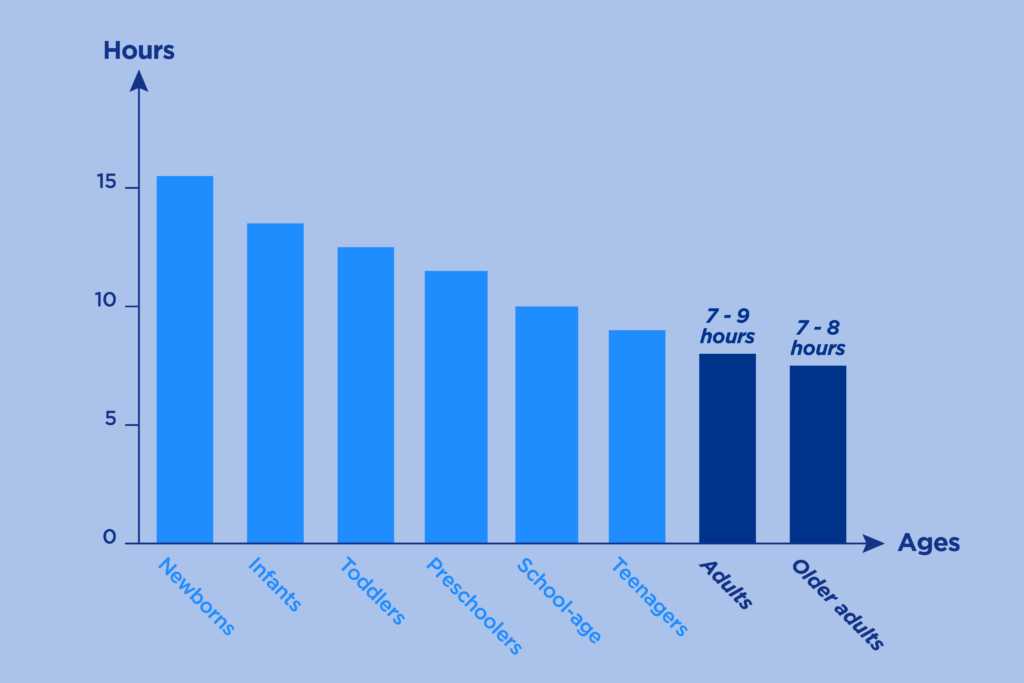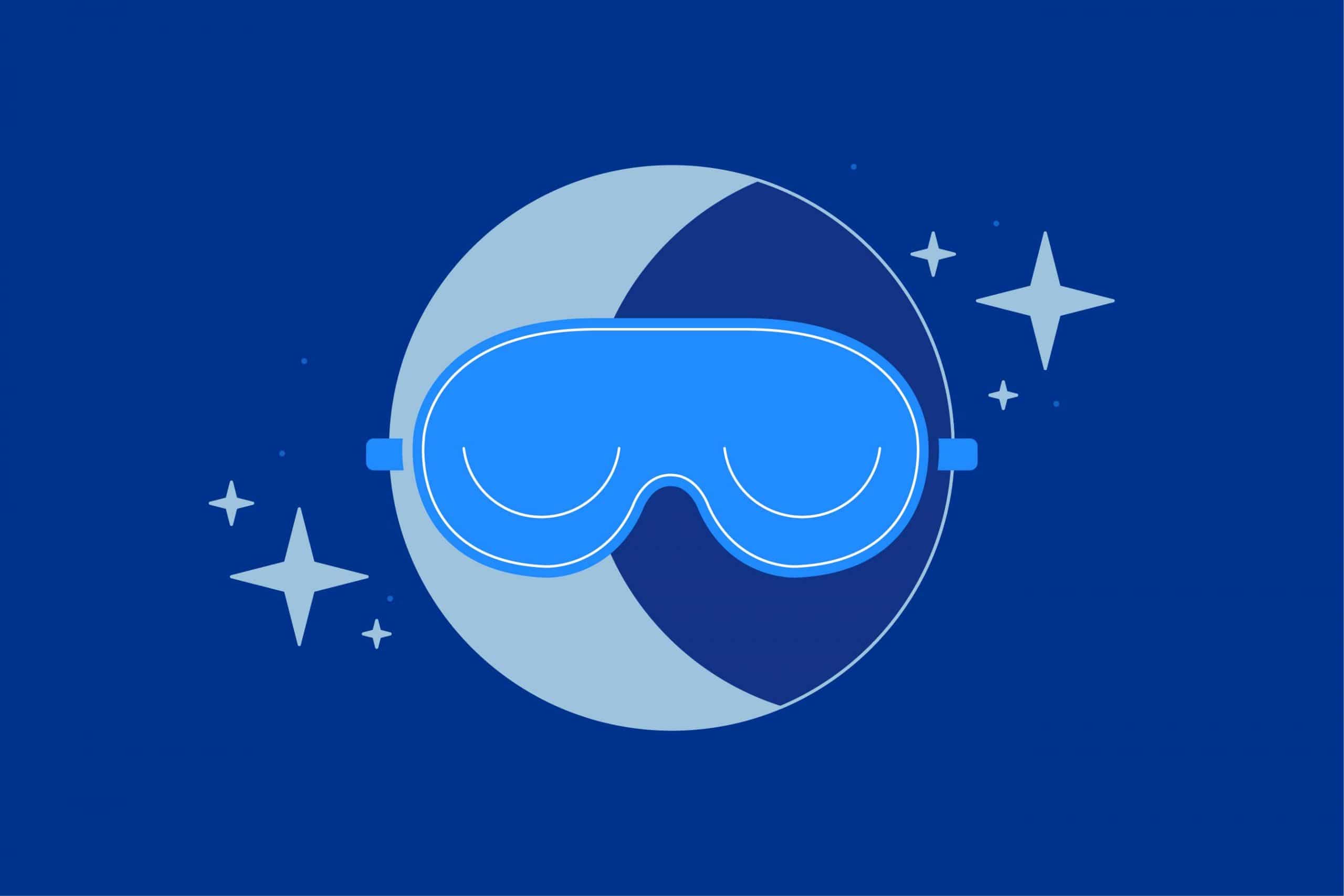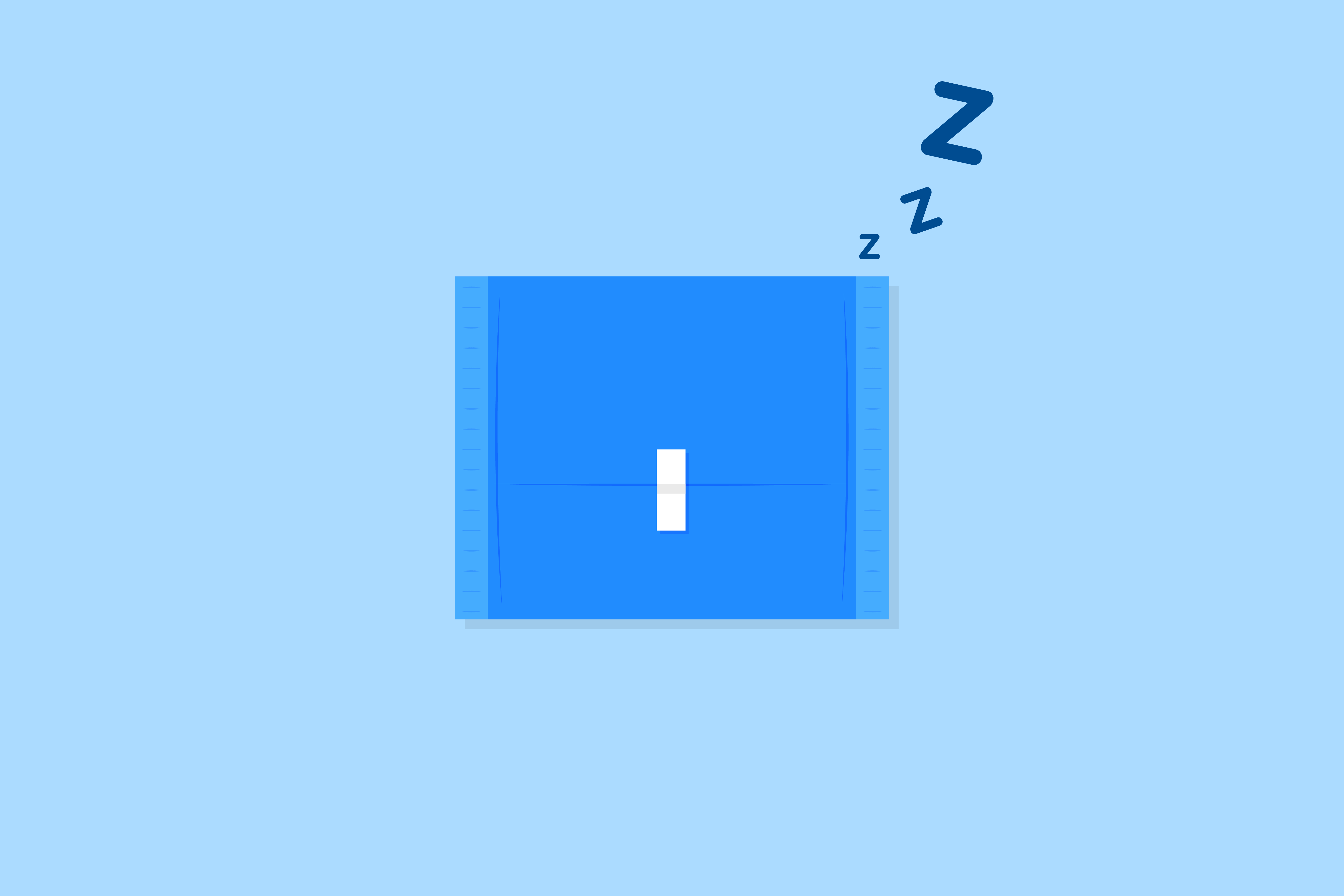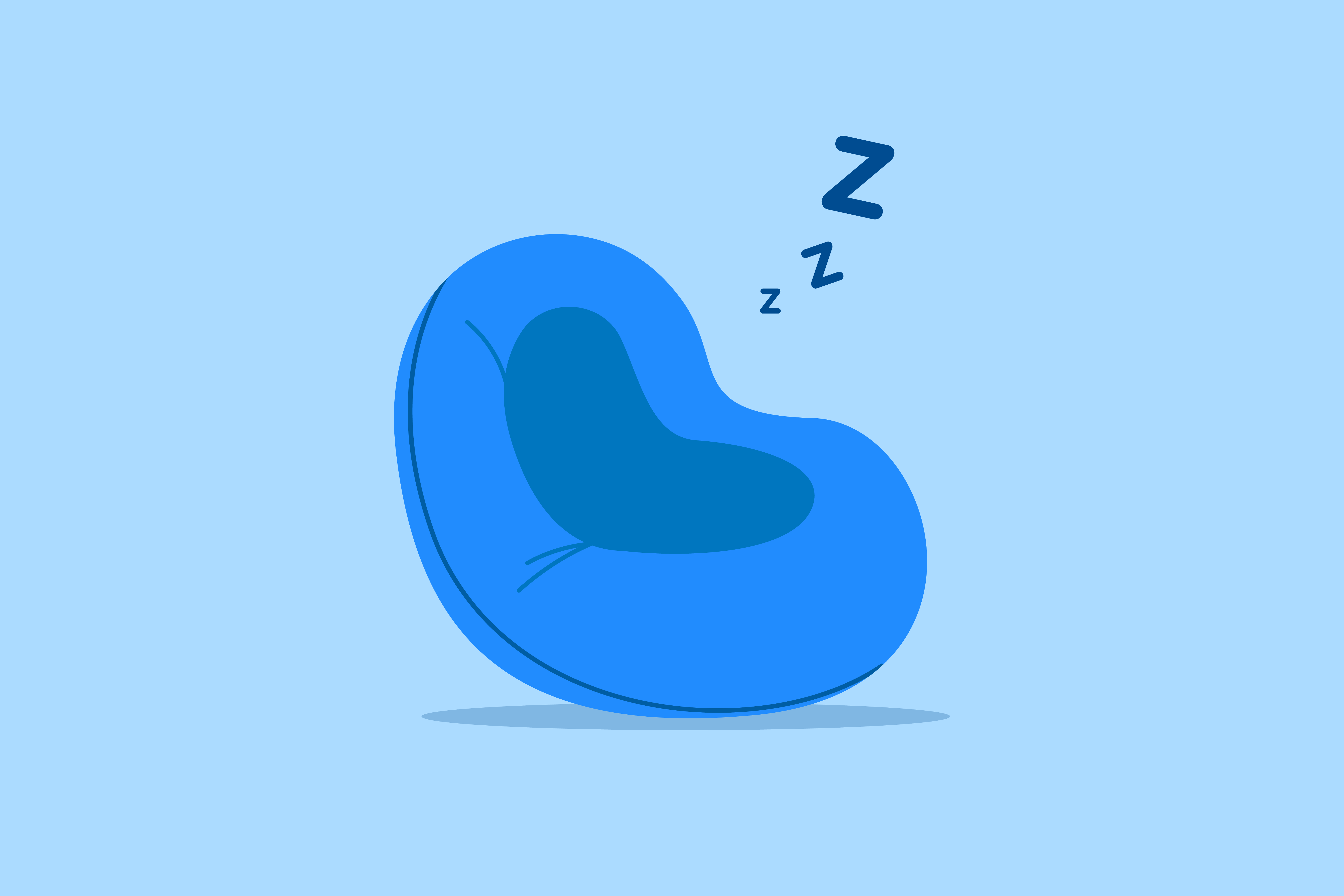Key Takeaways
- Definining Healthy Sleep: Healthy sleep involves both the quantity and quality of sleep. It’s not just about the number of hours you sleep but also about experiencing uninterrupted sleep cycles, including deep and REM sleep stages.
- Getting Quality Sleep: Sleep quality is influenced by factors like sleep efficiency, sleep latency, sleep duration, and wake after sleep onset. Good sleep quality positively impacts overall health, cognitive function, and emotional well-being.
- Symptoms of Unhealthy Sleep: Recognizing signs of unhealthy sleep, such as common sleep disorders and symptoms of sleep deprivation, is important. Seeking professional help from a sleep specialist can lead to early diagnosis and tailored treatments, improving sleep quality and overall health.
In the hustle and bustle of modern life, the crucial role of sleep may sometimes go unnoticed. But sleep is more than just a period of relaxation. It’s an essential biological process that assists in memory consolidation, tissue repair, growth and appetite regulation, and the fortification of our immune system.
Through this in-depth guide, we aim to explore the intriguing realm of sleep to shed light on what defines “healthy sleep,” its importance, and the negative impacts poor or inadequate sleep can have on your well-being.
Quick Guide: A 30-Second Summary
Best Mattress Overall for Healthy Sleep
Amerisleep AS3
Best Sheets for Healthy Sleep
Amerisleep Bamboo Sheets
Best Adjustable Bed for Healthy Sleep
Amerisleep Adjustable Bed+
Best Pillow for Healthy Sleep
Amerisleep Comfort Classic
What Is Healthy Sleep?
Healthy sleep is more than just getting the recommended 7 to 9 hours of rest per night or following a consistent sleep schedule. It involves consistent, uninterrupted sleep cycles, including deep sleep, rapid eye movement (REM), and light sleep stages. The quality of sleep you’re getting matters just as much as the quantity.
Quality sleep isn’t just about ticking off the needed hours. Verified Source National Library of Medicine (NIH) World’s largest medical library, making biomedical data and information more accessible. View source It’s about navigating all the stages of the sleep cycle successfully, leading you to awaken feeling renewed and recharged. It’s less about the clock and more about the depth and restfulness of your slumber.
Contrastingly, quantity focuses on the length of time you’re asleep. While both aspects are essential, securing top-notch sleep quality can exert a more profound influence on your health and wellness. Sleep quality Verified Source National Library of Medicine (NIH) World’s largest medical library, making biomedical data and information more accessible. View source refers to an individual’s satisfaction with various aspects of their sleep experience. It involves subjective perceptions of how well-rested and refreshed one feels after sleeping and can be influenced by factors such as:
- Sleep efficiency
- Sleep latency (time taken to fall asleep)
- Sleep duration
- Wake after sleep onset (time spent awake during the night)
Understanding sleep quality is significant because it directly impacts overall health and well-being. Good sleep quality is associated Verified Source National Library of Medicine (NIH) World’s largest medical library, making biomedical data and information more accessible. View source with positive effects like feeling rested, having normal reflexes, and maintaining positive relationships.
On the other hand, poor sleep quality can lead to negative consequences such as fatigue, irritability, impaired daytime functioning, reduced cognitive performance, and an increased intake of caffeine.

How Much Sleep Do I Need?
Ideal sleep duration can vary based on age and individual needs. For instance, newborns need around 14-17 hours, teenagers require 8-10 hours, while most adults function best with 7-9 hours of sleep per night. However, individual sleep needs can vary, and listening to your body to understand when you feel most refreshed is essential.
Determining the right amount of sleep varies by age:
- Newborns (0-3 months): 14-17 hours each day.
- Infants (4-11 months): 12-15 hours.
- Toddlers (1-2 years): 11-14 hours.
- Preschoolers (3-5 years): 10-13 hours.
- School-age children (6-13 years): 9-11 hours.
- Teenagers (14-17 years): 8-10 hours.
- Adults (18-64 years): 7-9 hours.
- Older adults (65+ years): 7-8 hours.
These are general recommendations, and individual needs may vary. Quality sleep is equally important as quantity.

Benefits of Healthy Sleep
Good enough sleep is vital for our body, mind, and feelings. It’s really important for staying physically healthy. It strengthens Verified Source National Library of Medicine (NIH) World’s largest medical library, making biomedical data and information more accessible. View source our immune system, making us more resilient in fighting off infections. It aids in the repair and growth of cells, supports heart health, and helps regulate our appetite and weight.
On the mental front, sleep significantly impacts our cognitive abilities. It enhances memory consolidation, improves concentration, and bolsters creative thinking. A good night’s rest is instrumental in problem-solving and decision-making processes.
Healthy sleep is intrinsically tied to our emotional well-being. Regular, restful sleep helps regulate our mood and lowers the risk of developing mental health disorders like depression and anxiety. It provides us with the energy to take on daily challenges, maintain social relationships, and generally enhance our quality of life. In short, good sleep is crucial for mental health and wellness.
Signs of Unhealthy Sleep
Unhealthy sleep, often a silent malady, can have far-reaching impacts on our daily lives. It’s important to recognize the signs, which can manifest as common sleep disorders or symptoms of sleep deprivation.
Among the most prevalent of sleep disorders are insomnia, characterized by difficulty falling or staying asleep, and sleep apnea, where breathing repeatedly stops and starts during sleep.
Other disorders that can cause sleep deprivation include:
- Restless Legs Syndrome: This disorder can greatly disrupt sleep quality, as restless legs syndrome fills a person with the urge to move their legs, typically when lying down in bed trying to fall asleep.
- Narcolepsy: Another sleep disorder that can significantly affect the quality of your sleep. Narcolepsy often leaves a person excessively tired during the day and prone to falling asleep.
- Circadian Rhythm Disorders: These disorders can throw off your sleep patterns, leading to poor sleep quality.
The impact of poor sleep extends beyond Verified Source National Library of Medicine (NIH) World’s largest medical library, making biomedical data and information more accessible. View source tiredness. It can lead to significant health problems, such as heart disease, diabetes, and obesity. Poor sleep can also affect mental health, contributing to anxiety and depression. Additionally, it can hamper productivity, impair cognitive function, and even strain personal relationships.
If you have trouble sleeping, evaluate your good and bad sleep habits. For chronic sleep deprivation, consulting with a sleep specialist could help. They might prescribe you clinical sleep medicine with some healthy sleep habits.
When to Seek Professional Help?
Struggling to fall asleep or stay asleep? Or waking up feeling tired despite a full night in bed? These could be signs that you need to visit a sleep expert. Alarm bells should ring if you snore loud enough to wake yourself or others if you’re gasping for breath while sleeping, feeling drowsy while driving, or if you’re constantly facing morning headaches, daytime tiredness, or fatigue.
Sleep experts can help pinpoint any underlying sleep issues, such as sleep apnea, insomnia, restless leg syndrome, or narcolepsy. They can guide you toward targeted treatments, which may involve behavioral therapies, medications, or lifestyle adjustments.
Remember, seeking medical help when needed can greatly boost your life quality. And a good night’s sleep isn’t a luxury. It’s essential. So, if sleep issues persist, don’t hesitate to get professional help. Catching and treating sleep disorders early can enhance your health, well-being, and sleep quality.
How to Achieve Healthy Sleep
Achieving healthy sleep is largely dependent on our daily habits and the sleep environment we cultivate. Let’s delve into some strategies that can lead to improved sleep health.
Good sleep hygiene practices are fundamental and can assist you in falling asleep more easily. Keeping the same sleep routine, including on your days off, can aid in synchronizing your body’s internal clock, leading to better sleep quality. This means going to bed and waking up at a consistent time every day.
Cultivating a calming pre-sleep routine – such as enjoying a good read, drinking a lukewarm cup of herbal tea for sleep, or indulging in a warm bath – can cue your brain that it’s time to unwind and gear up for a restful sleep.
The sleep environment is another crucial aspect. A room that’s dark, quiet, and cool can make a big difference. Consider using earplugs or a clever background noise if necessary, such as leaving a fan on to drown out other sounds.
Then make sure the room is dark enough for good sleep, but that you can still easily pull aside any curtains or blinds to reap the benefits of morning sunlight. While it’s best to step outside to fully experience morning sunlight, letting the beams fall into your bedroom can still help you wake up.
Moreover, powering down digital gadgets at least one hour before slumber can help counteract the blue light’s effects that can disrupt your natural sleep rhythms. Ideally, you want a tech-free bedroom, save for the essentials like a basic alarm clock and maybe your cell phone for any emergency calls. Lastly, complete the bedroom by investing in a quality mattress, pillows, and other bedding.
The habits you keep daily, like your eating habits and exercise routine, can greatly sway your sleep quality. Regular exercise can foster improved sleep, while a diet with minimal caffeine and sugar, especially near bedtime, can aid in avoiding sleep disturbances.
Consuming a balanced diet Verified Source National Library of Medicine (NIH) World’s largest medical library, making biomedical data and information more accessible. View source rich in fruits, vegetables, lean proteins, and whole grains can also promote better sleep.

FAQs
How do I know if my sleep is healthy?
One of the primary signs of healthy sleep is the ability to fall asleep relatively quickly, usually within 15 to 20 minutes of lying down. Maintaining a consistent sleep schedule is another hallmark of healthy sleep. This means going to bed and waking up at roughly the same time each day, even on weekends. A stable sleep routine helps regulate the body’s internal clock, promoting better overall sleep quality.
Also, individuals experiencing healthy sleep tend to sleep through the night without frequent awakenings, allowing them to enjoy uninterrupted rest. When waking up in the morning, a person with healthy sleep should feel refreshed and alert, rather than groggy or excessively tired from broken sleep. During the day, they should experience minimal daytime sleepiness or fatigue, allowing them to be productive and alert.
What is the ideal time to wake up?
The ideal time to wake up varies, influenced by chronotype and depending on individual preferences, work or school schedules, and lifestyle. Some are prone to feeling sleepier earlier in the day and waking up earlier, while night owls tend to be more active later into the night and consequently wake up later in the day. But most of people fall somewhere in between (the intermediate types).
Sleepers may need to experiment with different wake-up times until they find one that allows them to wake up feeling refreshed and alert and do their needed daily tasks. Some may even need low-dose melatonin supplements to help them fall asleep fast. Consistency in the time for going to bed is crucial for maintaining a stable sleep schedule and supporting the body’s natural circadian rhythm.
What causes a lack of deep sleep?
Several factors can contribute to a lack of deep sleep in stage N3, where it is slow-wave-sleep that researchers consider restorative sleep. Stress and anxiety are common culprits that can disrupt sleep patterns and reduce the time spent in deep sleep stages. Poor sleep habits, such as irregular sleep schedules or excessive screen time before bedtime, can also interfere with deep sleep.
Sleep disorders, such as sleep apnea, restless leg syndrome, and insomnia, can significantly impact deep sleep patterns, leading to poorer overall sleep quality. Stress can also contribute to insomnia and is a common cause of the acute variety.
What should I do if I can’t sleep?
If you’re struggling to sleep, start by improving your sleep hygiene. That means you should establish a consistent sleep routine, make your sleep environment comfortable, and limit exposure to screens before bed. Include regular exercise and a balanced diet in your daily routine. Avoid caffeine and eating close to bedtime. If problems still persist, seek help from a healthcare professional, as it might be a symptom of a sleep disorder.
At what age does sleep decline?
Sleep patterns can change with age, but it’s important to understand that individual variations are significant, and not everyone will experience the same changes. Generally, as people get older, they may notice shifts in their sleep habits. Older adults might experience earlier bedtimes and wake-up times compared to their younger years. The total amount of sleep might decrease slightly, with more time spent in lighter sleep stages.
As individuals age, they may experience more fragmented sleep with more frequent awakenings during the night. This can lead to a perception of sleep as less restful. Also, daytime napping may become more common among older individuals. Despite these changes, it’s essential to remember that healthy sleep habits and lifestyle choices can positively influence sleep quality throughout life.
What are some common sleep disorders and their symptoms?
Common sleep disorders include:
- Insomnia: Difficulty falling asleep or staying asleep, resulting in non-restorative sleep and daytime fatigue.
- Sleep apnea: Intermittent cessation of breathing during sleep, resulting in snoring, daytime sleepiness, and sometimes waking up gasping or choking.
- Restless Leg Syndrome (RLS): An uncomfortable sensation leading to an irresistible urge to move legs, especially during rest or at night.
- Narcolepsy: Excessive daytime sleepiness, sudden muscle weakness (cataplexy), sleep paralysis, and hallucinations just before falling asleep or upon waking.
- Circadian rhythm disorders: Disruptions in the body’s natural 24-hour sleep-wake cycle causing irregular sleep patterns.
How do I know if I have a sleep disorder?
Recognizing a sleep disorder requires attention to your sleep patterns and daytime and nighttime energy levels. If you consistently struggle to fall asleep or find yourself waking up frequently during the night and having difficulty getting back to sleep, or if you feel excessively tired and drowsy during the day, even after what you thought was a full night’s sleep, you may have a sleep disorder.
Especially if you find yourself dozing off or falling asleep in situations that require your attention, like during meetings, conversations, or while driving, it could be a sign of a sleep disorder.
Conclusion
In our fast-paced world, nurturing healthy sleep habits is crucial for overall well-being. By understanding the importance of sleep, recognizing the signs of sleep issues, and adopting healthy sleep practices, we can embark on a journey towards a well-rested and revitalized life. Remember, a good night’s sleep is not a luxury. It’s an essential component of a thriving and fulfilling existence. Prioritize your sleep, and your body and mind will thank you for it.
Recognizing the signs of sleep disorders and seeking professional help when needed can be transformative. Sleep specialists can diagnose underlying issues and recommend tailored treatments to improve sleep quality and overall health. Early intervention can prevent further complications and enhance life quality.
About the author
Mitchell Tollsen is a graduate student and a freelance writer who’s contributed to the Early Bird blog for three years. Mitchell’s always been fascinated by the science of sleep and the restorative processes our bodies undergo when at rest. The self-titled “Sleep Expert” is always looking for ways to improve his shut-eye, and throughout the years has implemented numerous lifestyle changes and tried dozens of sleep-promoting gadgets to determine the best ways to truly get better rest.
View all posts





